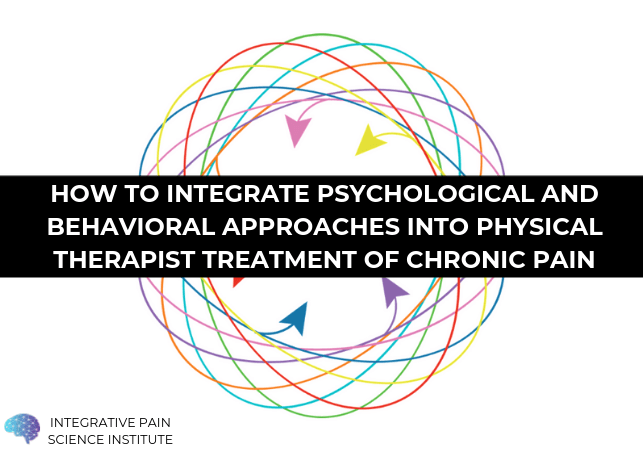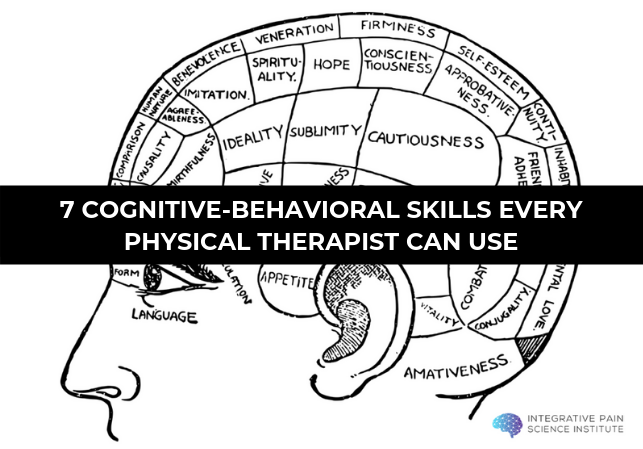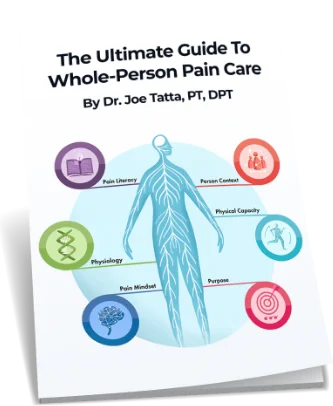An in-depth look at what physical therapists learn about pain in school

About 40% of American adults struggle with some type of chronic pain syndrome, but all too often treatment is delayed, disorganized, inaccessible, or ineffective (1). Why is this? Pain science and pain education are under-prioritized and poorly covered topics in the education of various health care disciplines. The 2011 Institute of Medicine (IOM) report “Relieving […]
Can Physical Therapists Counsel on Lifestyle and Behavior Change?

Two of your patients today are strikingly similar. They are both men in their 50’s, overweight, hypertensive, and coming to see you with a diagnosis of chronic lower back pain. One of them is rather introverted, smokes cigarettes, loves to read, eats relatively well, and is not fond of exercise. The other is outgoing, likes […]
How to Integrate Psychological and Behavioral Approaches into Physical Therapist Treatment of Chronic Pain

As research continues to show the benefits of integrating the biopsychosocial model of pain approach to treatment, psychology informed care has an increasingly important role in physiotherapy today. Although this model is considered the gold standard when it comes to the evaluation and treatment of chronic pain, not all physiotherapists are equipped with the necessary […]
How Culture Shapes the Pain Experience of Hispanics in the US

Leer en Español The experience of pain is universal and highly subjective. Regardless of race, ethnicity, and gender, we share the same nociceptors and nervous system that detect and carry sensory information to our brain; the same structures process and turn it into consciousness. However, there is large individual variation in pain, and the study […]
Preparing health care professionals to address nutrition-related conditions

Here is some food for thought -pun intended-: the most common chronic (or “lifestyle”) conditions, like type-2 diabetes, hypertension, heart disease, pain, and cancer, are more influenced by people’s eating habits and physical activity than by their genetic makeup (1, 2). Improving the delivery of nutrition care to patients in different settings (ie, from the […]
7 Cognitive-Behavioral Skills Every Physical Therapist Can Use

Cognitive-behavioral therapy (CBT) has shown to be highly effective in fields outside of traditional psychotherapy. Research illustrating the benefit of CBT techniques for patients with persistent pain has led physical therapists to explore their use. (1) Have you currently incorporated cognitive-behavioral skills into your clinical practice? The following is a 7-step framework for integrating CBT […]

